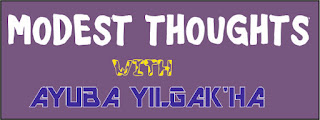Development is a multidimensional and multi-level phenomenon whose understanding can only be based on the context in which it is applied. The multidimensional nature of development relates to the scope of the concept which can be narrowed to economic, political, social, biological and historical dimensions of life or, broadly, understood in terms of the combination of two or more of these dimensions. The multi-level understanding of development stems from whether development relates to individuals (self), community (family, village, state, country, international) or even global development as a whole.
Because the development of a champion can better be understood at the individual level, the focus of this exposition is on individual (self) development. In other words, the commanding heights and strategy of a champion is self development.
In the postulation of Walter Rodney in 1972, self development or development at the individual level, implies increased skill and capacity, greater freedom, creativity, self-discipline, responsibility and material wellbeing of the individual that is being considered. In order to draw a distinction between self development and community ("social groups") development, the scholar noted that development at the community level implies increasing the capacity of the community members to jointly deal with their environment in such a manner that translates into the welfare of all or 'the greatest good of the greatest number'. This means that development at corporate level is the function of the combination of the actions of all members of the group. This means that every micro-action has macro-implications in the corporate world.
Self development is the commitment to of an individual to invest in personal skills, capability and understanding of how systems work with the aim of making useful and unique contributions towards achieving optimal results or making a difference. The idea is that whatever cause(s) any champion believes in, he pays concentrated attention in pushing for its realisation in a most distinguished manner. In other words, champions love curving a niche for themselves in every learning curve or process.
In extant literature, self-development process involves at least four basic activities. First, it is about action action, that is, work on achieving your personal development goals. It is an action packed phenomenon which reflects and reinforces the idea of "management by objectives". Secondly, self-development is about goal setting. That is, it has to do with developing short term and life time goals to turn your vision into reality. This is predicated on the time tested hypothesis that 'whatever is measurable is achievable'. Thirdly, it is about self discovery which has to do with identifying areas of strength and weakness by self assessing your skills to determine what you can readily do or not and making effort to improve for better performance. Fourthly, self development has to do with self assessment which involves learning about your skills, personality and interests.
Self development is a continuum because 'in the school of life', they say, 'there is no graduation'. Luigi Barzini as cited in the preliminary page of "Now we shall be entirely free", written by Andrew Miller (2018), said, "the only art worth learning but which can never be wholly mastered, is the art of inhabiting the earth." This mean that you have not started life if you have not improved by learning the art of living.
Self development is about knowledge acquisition and creativity in specific areas of interest. While knowledge has to do with useful experience or experiences; the author is not known who remarked that 'creativity is the mystery of freedom' and that, 'man can indeed, create the monstrous as well as the good, beautiful and useful.' What this means is that, except it is properly guided, creativity can be a tool for evil entreprise.
In the 21st century, the world and its inhabitants are highly interconnected and interdependent. However, what determines the wellbeing of individuals is their respective decisions or choices given that the environment around them is a constant. It affects everyone either positively or negatively and so it behoves on every person to decide on how to manoeuvre his way around it, that is, the environment. When the sun bites, some will use umbrella or even step out in it like that; others will complain and stay in their comfort zone. All these are choices that can make or mare someone.
It was Both (2011) who wrote, "one choice decides your friends; one choice defines your believes; one choice determines your loyalties forever; one choice can transform you." In a solo world, everything rise and fall on the choices individuals make. Whether it is about investment, practice or apprenticeship, relationship or risk taking, choice is at the centre but choices men make must be rational within the context of contemporary realities of the time.
There is this theory of rational expectations theory that comes to mind here. This theory presupposes that people make decisions based on three conditions: Their level of rationality, past experiences and the information that is available to them and, therefore, argued that the future expectations of the future will affect the outcome of that future. This means that human beings have to acquire and leveraged on their exposure, in terms of knowledge, education and common sense (self development) if they actually want to make a difference in the future. In other words, self development enables an individual or individuals to create the future they want for themselves. Self development is all about equipping and activating human potentials to make a difference in the nearest possible future.
Rot, V. (2011). Divergent. New York: Catherine Tegen Books.
Andrew, M. (2018). Now we shall be entirely free(fiction). London: Sceptre.








No comments:
Post a Comment